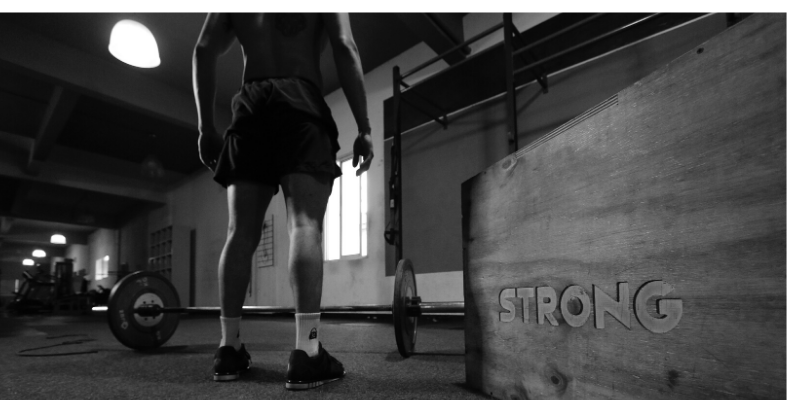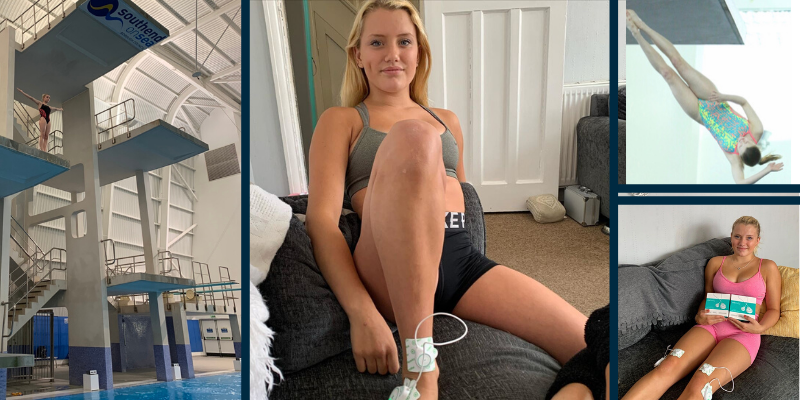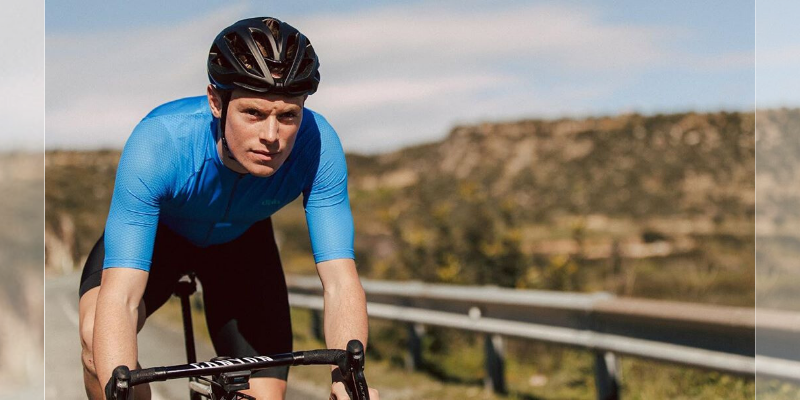Whether you are an elite athlete or a keen amateur, recovery is always there to ensure that your body stays in tip-top shape. We have a chat with NuroKor athletes Team GB Skier - Charlie Guest, Team GB Diver - Ross Haslam and Ambition Racing Coach -Marc Telling, to get insight into an athlete's recovery and how they stay ready for more!
1. Get some food in you!

Never underestimate the power of feeding your muscles. “Get some good snacks prepared for the training week.” says Charlie Guest, “Nothing eats into (excuse the pun) your recovery time more than having to spend ages prepping food!” Ross Haslam agrees by mentioning, “Protein AND carbs after training. I try to have something as soon as possible after sessions for recovery. The longer you leave it, the less effective it will be.” High-protein snacks will enhance glycogen storage and muscle protein synthesis.
2. Get that beauty sleep!
![]()
It makes sense to replenish lost energy, and a good sleep routine can help to retain and restore the body. “Getting enough sleep is critical for optimum performance,” says Ross. “Sleep is something that I also struggle with, so I try to make sure that even if I am not asleep I am fully resting, eyes closed, and no phone!”
3. Relax your mind!

Relaxing mentally as well as physically is essential to recovering. Charlie Guest believes that “although sitting at your computer doing work is giving your body a break, you need to make sure it is calm, so reading a book, walking, yoga, meditating and sleeping are all ideal!” Marc Telling agrees and mentions that he ensures that all his athletes spend a good amount of time without technology and instead just focusing on their own thoughts. It puts the body into a positive state which is ideal for recovery along with keeping your body refreshed and ready for more.
4. Streeeetch!

Try to implement stretching into your immediate post-workout routine (when your muscles are already warm). This will increase your flexibility, improve your range of motion, reduce lactic acid, and help you to recover faster. As a professional diver, Ross finds this to be imperative to his success, “I am actually very stiff (especially for a diver) and so have to pay extra attention to stretching,” says Ross. “To be able to make the shapes I have to make in the aerial part of the dive and also to reduce the chance of injury.” It is not just an important ritual for divers, Marc Telling, Head Coach for Ambition Racing adds, also echoing the importance of spending 15-30 minutes stretching the key muscles whilst they are warm.
5. Get a pocket-sized physiotherapist

This list would not be complete without NuroKor technology being featured as a key recovery tool. Our NuroKor athletes love that it fits hand-in-hand with all their trusted recovery methods, and provides the extra TLC they might be craving in between physio sessions.
Charlie Guest: “I love using NuroKor on the move, some days we just don’t have time to fit in a recovery session in the gym, so using the device on my legs helps me get fresh for the next day. On days when I have some pain in my back, I like to use the pain management to help get everything feeling normal again - so I have the confidence to take on the mountain.” She also mentions combining her NuroKor sessions with her Netflix binges, “it’s recovery on top of recovery!”

Ross Haslam: “I use my Nurokor mainly after hard strength and conditioning sessions, as well as after all of my competitions. This means I can be recovered and ready to go again much quicker than if I didn't have my NuroKor… I like to use the Recover setting and the MC2 setting post-training.”

...
Your recovery process should be personalised to suit your needs and individual goals. Never underestimate the power of recovery and remember to get creative on how you can implement your post-workout routines. Recovery is vital and can be the key to unlocking your full potential as an athlete or competitor.



